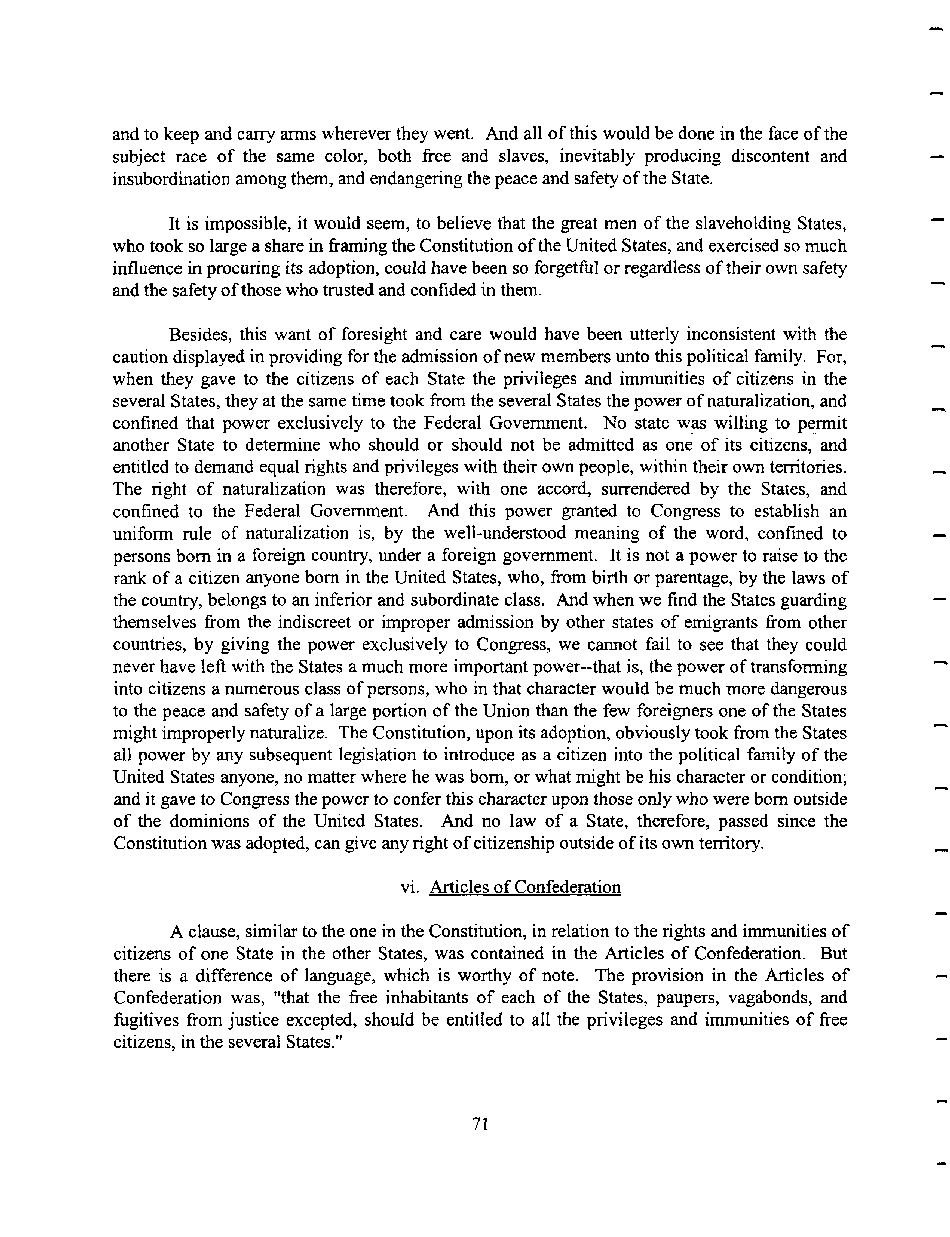|
and to keep and carry arms wherever they went. And all of this would be done in the face of the
subject race of the same color, both free and slaves, inevitably producing discontent and
insubordination among them, and endangering the peace and safety of the State.
It is impossible, it would seem, to believe that the great men of the slaveholding States,
who took so large a share in framing the Constitution of the United States, and exercised so much
influence in procuring its adoption, could have been so forgetful or regardless of their own safety
and the safety of those who trusted and confided in them.
Besides, this want of foresight and care would have been utterly inconsistent with the
caution displayed in providing for the admission of new members unto this political family. For,
when they gave to the citizens of each State the privileges and immunities of citizens in the
several States, they at the same time took from the several States the power of naturalization, and
confined that power exclusively to the Federal Government. No state was willing to permit
another State to determine who should or should not be admitted as one of its citizens, and
entitled to demand equal rights and privileges with their own people, within their own territories.
The right of naturalization was therefore, with one accord, surrendered by the States, and
confined to the Federal Government. And this power granted to Congress to establish an
uniform rule of naturalization is, by the well-understood meaning of the word, confined to
persons bom in a foreign country, under a foreign government. It is not a power to raise to the
rank of a citizen anyone bom in the United States, who, from birth or parentage, by the laws of
the country, belongs to an inferior and subordinate class. And when we find the States guarding
themselves from the indiscreet or improper admission by other states of emigrants from other
countries, by giving the power exclusively to Congress, we cannot fail to see that they could
never have left with the States a much more important power—that is, the power of transforming
into citizens a numerous class of persons, who in that character would be much more dangerous
to the peace and safety of a large portion of the Union than the few foreigners one of the States
might improperly naturalize. The Constitution, upon its adoption, obviously took from the States
all power by any subsequent legislation to introduce as a citizen into the political family of the
United States anyone, no matter where he was bom, or what might be his character or condition;
and it gave to Congress the power to confer this character upon those only who were born outside
of the dominions of the United States. And no law of a State, therefore, passed since the
Constitution was adopted, can give any right of citizenship outside of its own territory.
vi. Articles of Confederation
A clause, similar to the one in the Constitution, in relation to the rights and immunities of
citizens of one State in the other States, was contained in the Articles of Confederation. But
there is a difference of language, which is worthy of note. The provision in the Articles of
Confederation was, "that the free inhabitants of each of the States, paupers, vagabonds, and
fugitives from justice excepted, should be entitled to all the privileges and immunities of free
citizens, in the several States."
71
�
|

